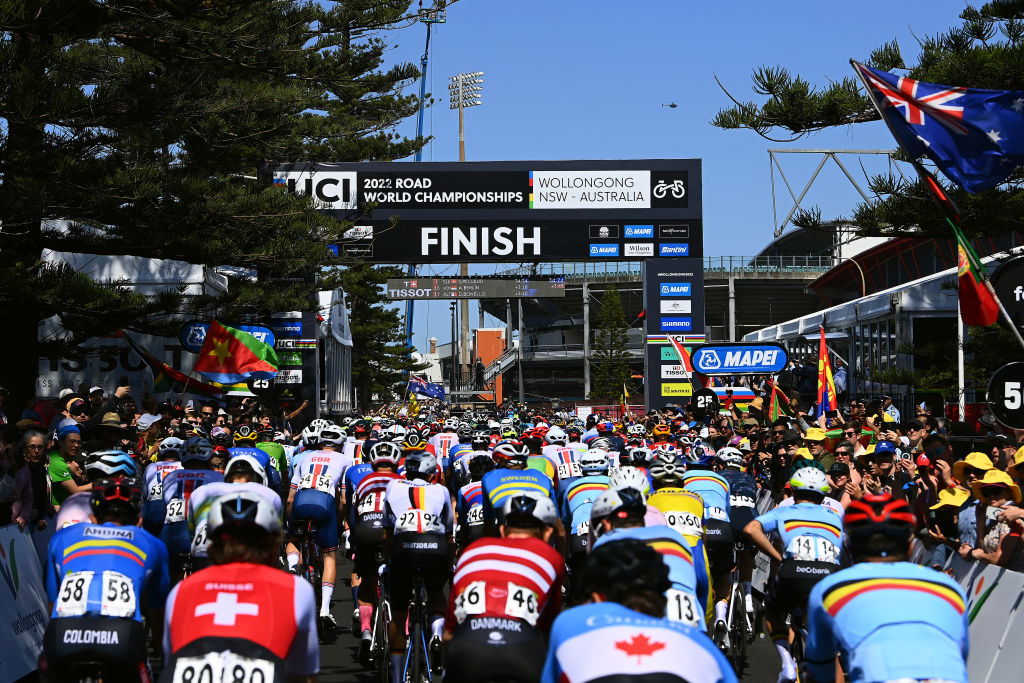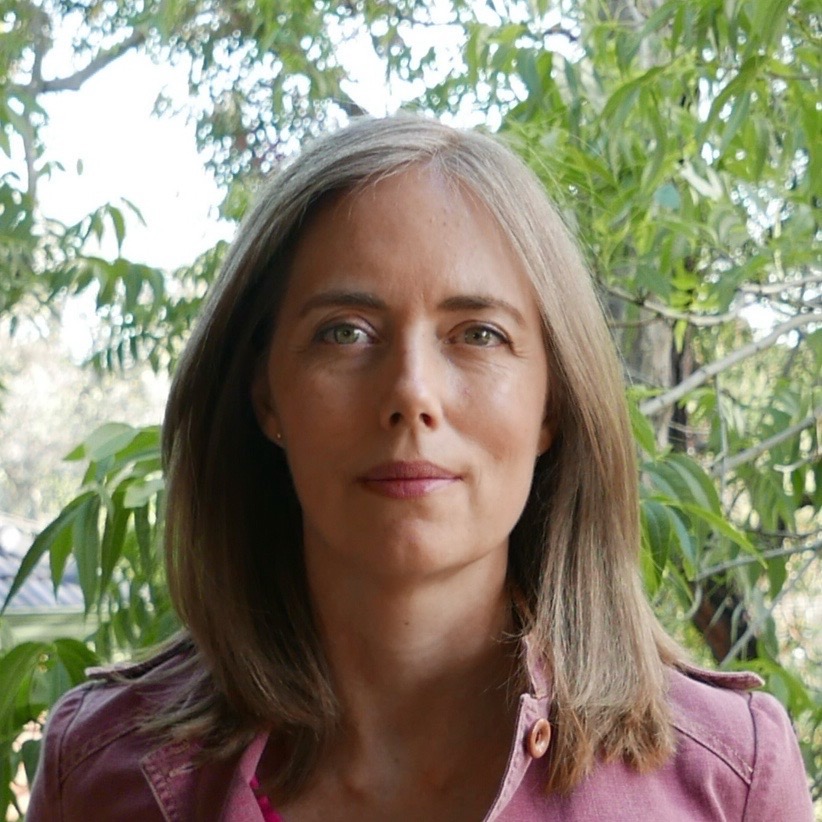Goodbye Wollongong Worlds, hello Glasgow mega-championships
End of Australian racing means passing of baton to £54 million cross-discipline championships with 8,000 competitors

The 2023 UCI Road World Championships will look a whole lot different to any that we may have seen before. Yes, it will be back in Europe after an Australian foray but this time it will be nestled among 12 other cycling disciplines and somewhat a ‘leap of faith’ for Glasgow as it hosts the first of the mega-events to be held every four years.
It was a plan that started to unfurl over a breakfast meeting in Bangkok, between then-recently elected UCI President David Lappartient – who stepped into the position in 2017 – and the director of events for VisitScotland, Paul Bush, on the sidelines of the SportAccord summit.
“David said ‘I have an idea’,” recounted Bush on the sidelines of the racing at the World Championships in Wollongong. “And part of his vision was to aggregate the World Championships.
“When he said ‘What do you think?’, my response was that would be amazing because obviously Scotland's hosted Commonwealth Games, Ryder Cup, European Championships – in evolution terms it was the natural thing for us to do.”
The 11-day event, which Bush said had a budget of £54 million, will be centred in Glasgow but will spread out to other locations across Scotland, with Glentress Forest and Fort William hosting the mountain bike events and the road events also branching out.
All in all, from August 3 to 13 in 2023, more than 200 world titles will be awarded across the 13 UCI World Championships – BMX Freestyle Flatland, BMX Freestyle Park, BMX Racing, Gran Fondo, Indoor Cycling, MTB cross-country, MTB Downhill, MTB Marathon, Para-cycling Road, Para-cycling Track, Road, Track and Trials.
“There’s no manual, it’s never been done … but I think part of the excitement, and part of the scary bit is that it's not been done,” Bush told Cyclingnews, adding that he is, between the vision and combined expertise of the host nation and the UCI, nevertheless confident.
Get The Leadout Newsletter
The latest race content, interviews, features, reviews and expert buying guides, direct to your inbox!
“It will not be easy, we all know that, but anything in life that is worth doing is not easy.”
Spreading the benefit
One thing, however, that will make it easier is that the host of the 2014 Commonwealth Games not only has a history of delivering on big events, but already has much of the infrastructure in place.
“That was another advantage,” said Bush. “We already have a velodrome built for the games in 2014, a BMX track which was built for the European Championships in 2018 and the World Cup mountain bike downhill at Fort William has been established for a long time.”
Bush added that they had needed to do some work on the cross-country and marathon mountain bike course in Glentress but that with the roads playing host to most of the other events the main infrastructure task left was work on resurfacing and road furniture modification.
The spread of the Championships beyond one central location mean that not only is the access to existing infrastructure increased, but the load and benefits shared as well.
"It's not just a single location so we can take it to rural locations, to spread the benefit economically, but also in terms of the international profile and experientially," said Bush. "I mean, one of the great things about cycling is most of the events are free."
Getting that broad community involvement is a crucial part. Bush said a key driver for this combined Cycling World Championships was also using it as a catalyst to change people's psyche and behaviour, with a shift towards more sustainable transport as a legacy.
"There is a balance because there still needs to be the economic case,” said Bush. “But the trajectory for events, where we are at present, is much more along a trajectory of social community equality, diversity, inclusion agendas than it is purely about economics and international profile.
“You can demonstrate that events can do something for society and communities and not just for economic driver. And if it means that, you know, we inspire more families, more young people, more groups from disadvantaged communities to get involved I think it's an added layer of positivity.”
The first step, however, is getting the community ready for an event when there is no predecessor in place to give them a perspective on the scale of what is about to unfold.
A ‘notch up’ from Commonwealth Games
"Come Sunday night, this becomes really real,” Bush said in the final throes of the Wollongong Road World Championships, as the handing of the baton to Glasgow was becoming ever-more imminent. The courses for the road events in Scotland were also announced last week, with the 277.6km men's elite route starting in Edinburgh before heading to Glasgow, while the 157.4km elite women's race – which closes the event – sets off from Loch Lomond before heading toward the Glasgow city circuits.
“I mean, it's real already, but it becomes absolutely real from now and I think we've still got a massive education job to do within our own teams, in the wider communities, but also not just within the cycling fraternity, but the sporting fraternity. For them to say that's big.
“A multi-world championship event of 8,000 athletes … if you [are] benchmarking around the world, there aren't many that are bigger.”
The Olympic Games and Asian Games are two events that Bush points out are bigger, but as far as the Commonwealth Games goes he describes the 2023 Road World Championships as a ‘notch up’. There were 5,500 competitors in Glasgow in 2014 to represent 71 countries, while in 2023 at the combined World Championships there will be 8,000 expected athletes, representing 120 countries.
The event that Bush described as a ‘showcase for the sport of cycling’ is now locked in to a regular four-year schedule, with the Haute-Savoie department of France announced as the next host of the combined Cycling World Championships in 2027 and taking the concept even further with its expansion to 19 events.
”It's pretty groundbreaking and historic as a proposition,” said Bush of the combined Championships. “Many sports will probably look at it quite enviously.”

Simone is a degree-qualified journalist that has accumulated decades of wide-ranging experience while working across a variety of leading media organisations. She joined Cyclingnews as a Production Editor at the start of the 2021 season and has now moved into the role of Australia Editor. Previously she worked as a freelance writer, Australian Editor at Ella CyclingTips and as a correspondent for Reuters and Bloomberg. Cycling was initially purely a leisure pursuit for Simone, who started out as a business journalist, but in 2015 her career focus also shifted to the sport.